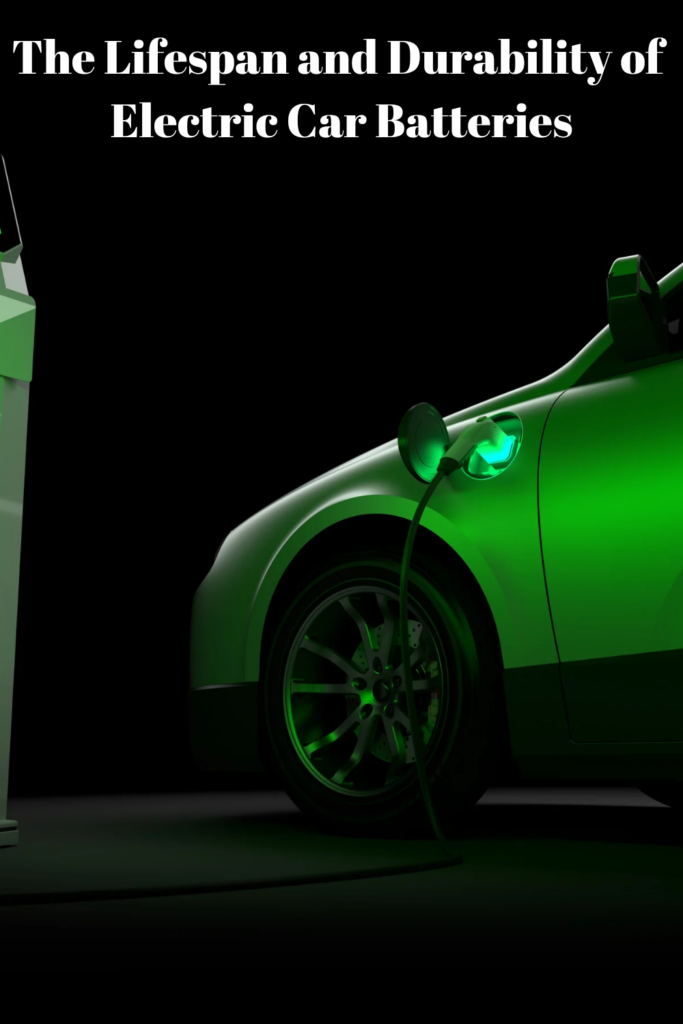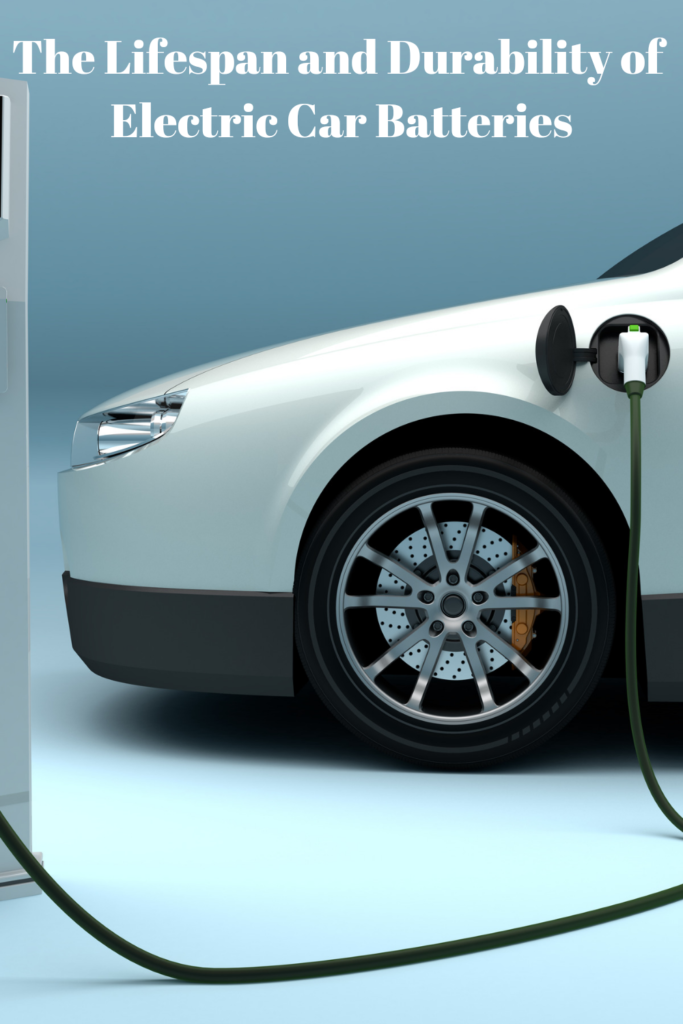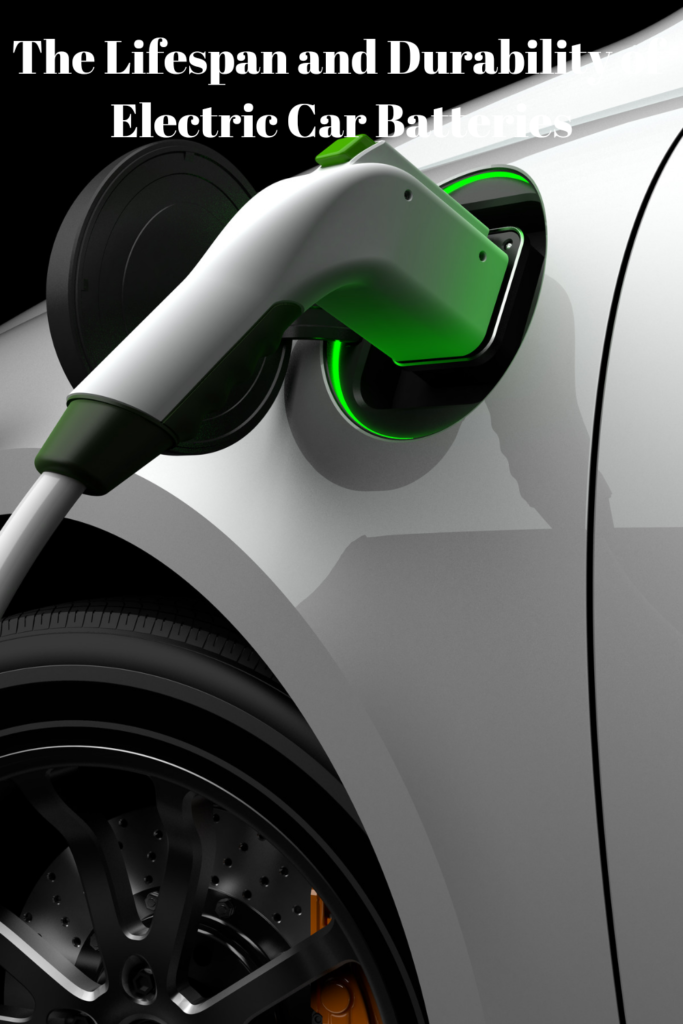The Lifespan and Durability of Electric Car Batteries: What You Need to Know
Electric vehicles (EVs) have quickly gained popularity as a cleaner and more sustainable alternative to traditional gasoline-powered cars.
One of the most critical components of an EV is its battery, determining the car’s overall range and performance.

In this blog post, we will delve into the lifespan and durability of electric car batteries, exploring various factors that influence their longevity.
By examining the latest research studies and industry reports, we aim to provide you with actionable insights and equip you to make informed decisions about owning an electric vehicle.
Factors Affecting Battery Lifespan:
- Usage Patterns:
The manner in which an electric car is driven significantly impacts the life of its battery. Aggressive driving habits, rapid acceleration, and frequent high-speed driving can accelerate battery degradation. On the other hand, a smooth and steady driving style can help maximize battery life and overall performance. - Charging Practices:
Battery life can also be affected by how frequently and how the vehicle is charged. Maintaining the battery charge level within the recommended range (usually between 20% and 80%) helps mitigate stress on the battery cells, prolonging their lifespan. Additionally, opting for slower chargers rather than fast chargers during regular charging cycles can reduce strain on the battery. - Environmental Conditions:
Extreme temperatures – both hot and cold – can impact the lifespan of electric car batteries. High temperatures accelerate the chemical reactions within the battery, leading to faster degradation. Conversely, extremely cold temperatures result in reduced battery performance. Therefore, storing and operating the electric vehicle in moderate temperature ranges can help extend battery life.
Precise Data and Statistics:
According to research conducted by Bloomberg New Energy Finance, the average lifespan of electric car batteries currently stands at around 8 to 15 years.
However, these estimates come with considerable variation, depending on the aforementioned factors and the specific model and make of the electric vehicle.

Battery warranties provided by automakers usually cover up to 8 years or 100,000 miles, indicating their confidence in the batteries’ durability.
Drawbacks and Limitations:
- Battery Degradation Over Time:
As with any battery technology, electric car batteries degrade over time. Gradual capacity loss is expected with regular usage, resulting in reduced range and performance as the battery ages. However, advancements in battery technology are constantly being made, offsetting some of the typical degradation concerns. - Cost of Replacement:
The cost of replacing an electric car battery can be substantial, often reaching several thousand dollars. However, it is worth noting that battery prices have been declining steadily, and with increased adoption of electric vehicles, economies of scale are expected to drive down battery replacement costs in the future.
Real-Life Examples and Anecdotes:
Countless EV owners worldwide are enjoying the benefits of electric transportation, and their experiences provide valuable insights into battery life.
For instance, some early adopters with electric vehicles manufactured a decade ago still report using their original batteries with limited capacity loss.
These cases highlight that battery life can potentially surpass initial expectations, especially with proper care and attention to charging practices.
Expert Insights:
Industry experts emphasize that the key to maximizing electric car battery life lies in understanding and following the manufacturer’s recommendations for usage and maintenance. Regular software updates, which improve the accuracy and optimization of battery management systems, are also crucial to prolonging battery life.
Conclusion:
The lifespan and durability of electric car batteries are influenced by various factors such as usage patterns, charging practices, and environmental conditions.
While the average lifespan is currently estimated to be between 8 to 15 years, this can vary significantly depending on several factors.

Although battery degradation and the cost of replacement remain concerns, advancements in technology and decreasing costs make EV ownership increasingly attractive.
By following manufacturer recommendations and adopting best practices, EV owners can ensure long-lasting and reliable battery performance, enabling a sustainable and enjoyable driving experience for years to come.
